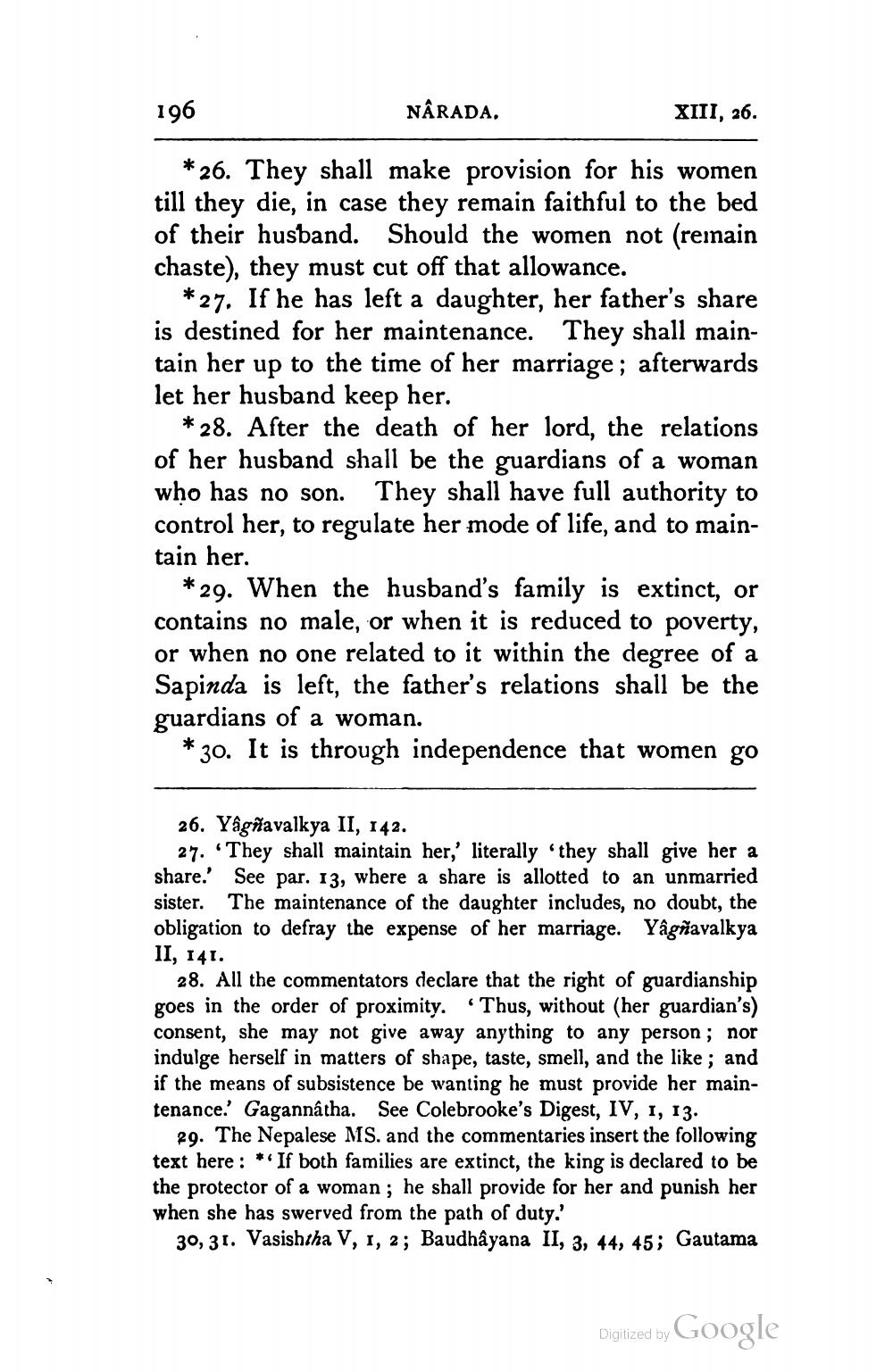________________
196
NÂRADA.
XIII, 26.
*26. They shall make provision for his women till they die, in case they remain faithful to the bed of their husband. Should the women not (remain chaste), they must cut off that allowance.
*27. If he has left a daughter, her father's share is destined for her maintenance. They shall maintain her up to the time of her marriage; afterwards let her husband keep her.
*28. After the death of her lord, the relations of her husband shall be the guardians of a woman who has no son. They shall have full authority to control her, to regulate her mode of life, and to maintain her.
*29. When the husband's family is extinct, or contains no male, or when it is reduced to poverty, or when no one related to it within the degree of a Sapinda is left, the father's relations shall be the guardians of a woman.
* 30. It is through independence that women go
26. Yâgñavalkya II, 142.
27. 'They shall maintain her,' literally "they shall give her a share.' See par. 13, where a share is allotted to an unmarried sister. The maintenance of the daughter includes, no doubt, the obligation to defray the expense of her marriage. Yâgñavalkya II, 141.
28. All the commentators declare that the right of guardianship goes in the order of proximity. Thus, without (her guardian's) consent, she may not give away anything to any person; nor indulge herself in matters of shape, taste, smell, and the like ; and if the means of subsistence be wanting he must provide her maintenance.' Gagannatha. See Colebrooke's Digest, IV, 1, 13.
29. The Nepalese MS. and the commentaries insert the following text here: * If both families are extinct, the king is declared to be the protector of a woman; he shall provide for her and punish her when she has swerved from the path of duty.
30, 31. Vasishtha V, 1, 2; Baudhầyana II, 3, 44, 45; Gautama
Digitized by Google




